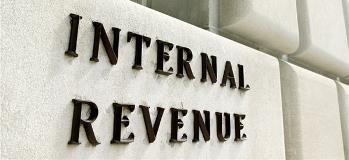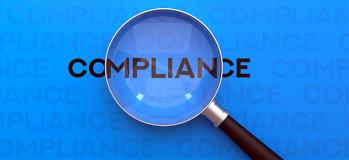Winter 2023
Features
Emotional Intelligence: The In-Demand Skill for Great Leaders
By Elizabeth A. Wilson, CPA
Leaders come in many forms, shapes, and sizes, but leadership always boils down to relationships and connections. An effective leader builds trust, inspires, and mobilizes people toward goals. It starts with identifying a compelling vision of a shared future rooted in core values and is followed by creating a path for the success of all.
Rise of Cryptocurrency Means Careful Tax Planning Needed
By Cassandra Bennett, CPA, DBA, and Jeffrey Bennett, CPA, MBA
The phenomenon of cryptocurrency has gained steam over the past few years. The flexibility of this digital, encrypted, and decentralized form of exchange intrigues many, but it is causing consternation on how exactly to tax its use and how to mitigate some of the tax burden derived from its holdings.
Columns

Accounting & Assurance
The GAAP in Accounting for PTE Taxes
By James J. Newhard, CPA
CPAs specializing in A&A must now hold a lot more tax knowledge so they can truly understand the measurement, reporting, and disclosure necessities of today’s PTEs

Business & Industry
What Today’s Employers Need to Know about Compensation Trends
By Stephane L. Smith, SPHR, SHRM-SCP
It is important for employers to recognize and adapt to emerging human resource (HR) dynamics and allocating space in the budget for the increased pay rates of the current market should be a top priority for accounting and finance departments.

Business Succession Planning
Acquisition Entrepreneurs: A Solution to Succession Dilemmas
By Michael A. Zaydon, CPA
The next generation of aspiring small-business owners is playing a major role in facilitating the generational wealth and business transition wave currently underway and they may be the perfect fit for business owners and their advisers who care not only about the financial prospects of a business exit, but the emotional ones as well.

Business Transformations
R&D Tax Credits and M&A Transactions
By Jonathan Forman and Michael Wilshere, JD
When considering a merger or acquisition, tax attributes are often not a due diligence priority. Incorrect assumptions are often made about the value and utility of these attributes. An acquiring company can be surprised to find out it cannot use any of the target’s R&D tax credits following the acquisition.

Careers & Lifestyles
Rewirement: Changing the Mindset before Retirement
By Alyzabeth R. Smith, CPA
Like many of their clients, CPA professionals face the uncertainty of abandoning a lifelong craft. This can lead to planning delays and thwart the kind of creative planning that results in post-career fulfillment.

Federal Tax
The Inflation Reduction Act of 2022 and the Corporate Alternative Minimum Tax
By Robert E. Duquette, CPA
The new corporate alternative minimum tax (CAMT) is a significant feature of the Inflation Reduction Act of 2022. There are situations in which the CAMT could apply that would not be obvious at first.

State & Local Tax
Historic CNIT Reductions and Small-Business Tax Reform
By Drew VandenBrul, CPA, and Michael Semes, JD
Gov. Tom Wolf signed House Bill 1342 into law as Act 53 of 2022 marking the first change in Pennsylvania’s corporate net income tax (CNIT) rate since 1995, reducing it by more than 50% over the next nine years: from 9.99% in 2022 down to 4.99% in 2031.

Personal Financial Planning
Mitigate the Tax Impact of the Death of an Owner/Shareholder
By Michael C. DeFillipo, CLU, ChFC
For many owners of closely held businesses, their largest asset – and the one that is perhaps most difficult to value – is their interest in their business. With the current estate tax exemption levels set to sunset at the end of 2025 (if not before), business owners and their CPAs may need to take appropriate steps in the tax and legacy planning process.

Ethics
Ethics and Independence Amid the Great Resignation
By Heather Demshock, CPA, CMA
Accounting professionals at all stages of their careers have been moving on and this raises ethical considerations for those in public accounting since many of the professionals and partners leaving have opportunities for continued employment with their firms’ clients.

Technology & Cybersecurity
The Microsoft Wrinkle to Third-Party Risk Management
By Matthew Schiavone, CPA, CISSP, CISA
Third-party risk management – or the minimization of risks introduced by third-party organizations – is a critical component of all cybersecurity programs. CPAs are service providers, and many of your clients are service providers, so you may be familiar with requests to fulfill a third-party risk management program.

IRS Plans for 2023 and Beyond
By Alex Fabian
The $430 billion Inflation Reduction Act of 2022 appropriates about $80 billion over the next decade for IRS activities, including the hiring and training of new auditors, technology systems modernization, and taxpayer services.

Forensic Accounting
Corruption Policy Changes Highlight Compliance Programs
By Paul Donato, CPA, CFE, Irina Lazieva, JD, and Jennifer Riddle, JD
The Biden administration has called for a collaborative, multiagency task force to develop strategies to mitigate the global corruption threat. The DOJ expects companies to review their compliance programs to ensure they have implemented programs that are well-designed, are adequately resourced and empowered to function effectively, and work in practice.

Liability Lessons
Decrease Your Liability Risk Before Tax Season
By Irene M. Walton
Tax season is quickly approaching, and CPAs are actively preparing to meet the impending needs of their clients. This also is a time when CPAs should be especially diligent in reducing their liability risks.

Employee Benefit Plans
With Several SASs Put to Bed, Seven More Standards Await
By Julie Verrekia, CPA
A common topic on everyone’s mind this employee benefit plan audit season was implementation of Statement on Auditing Standards (SAS) No. 136, Forming an Opinion and Reporting on Financial Statements of Employee Benefit Plans, in addition to SAS Nos. 134, 135, and 137-141. In short, SAS No. 136 contains a new reporting model for audits of plans subject to the Employee Retirement Income Security Act (ERISA), as well as incremental performance requirements for those audits.



